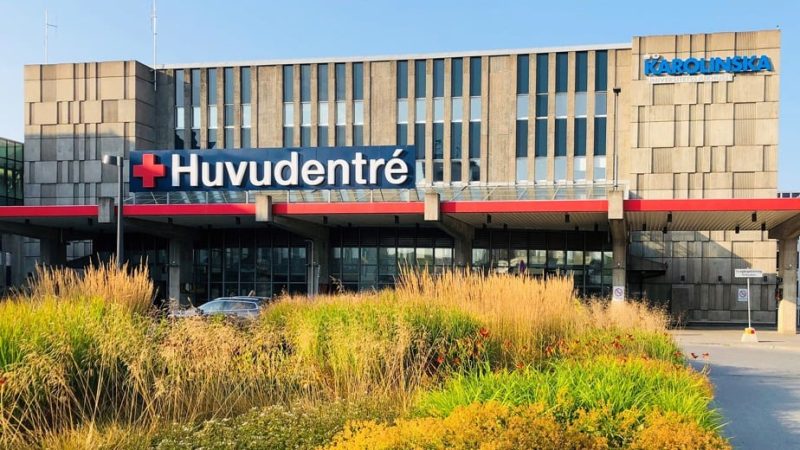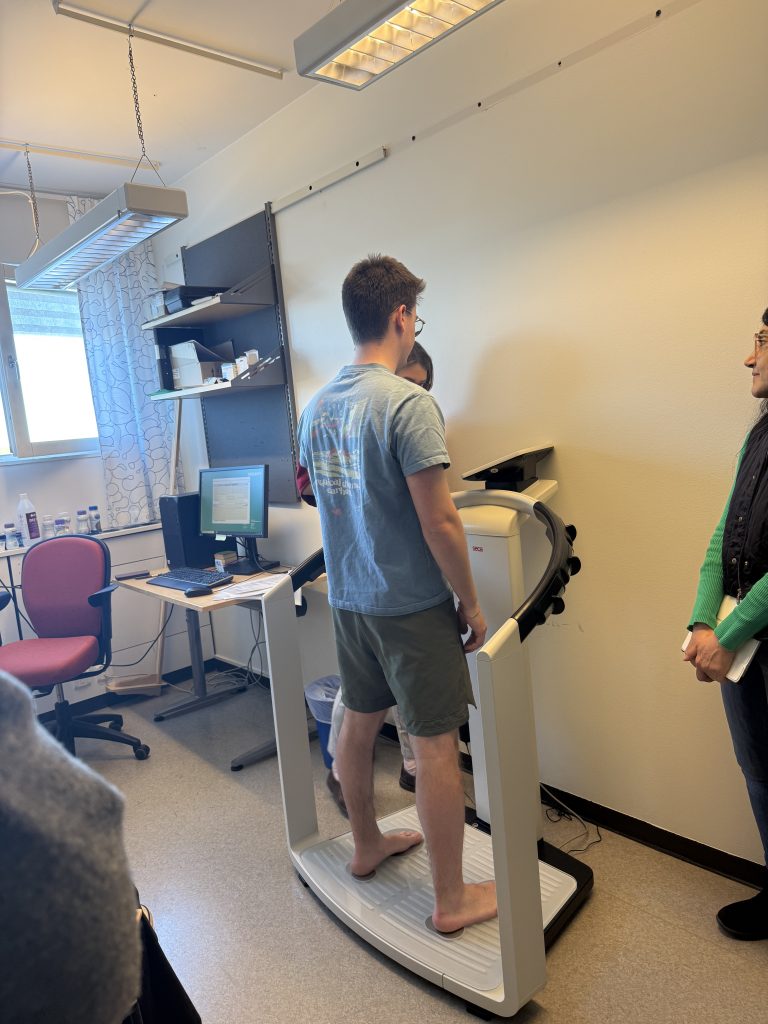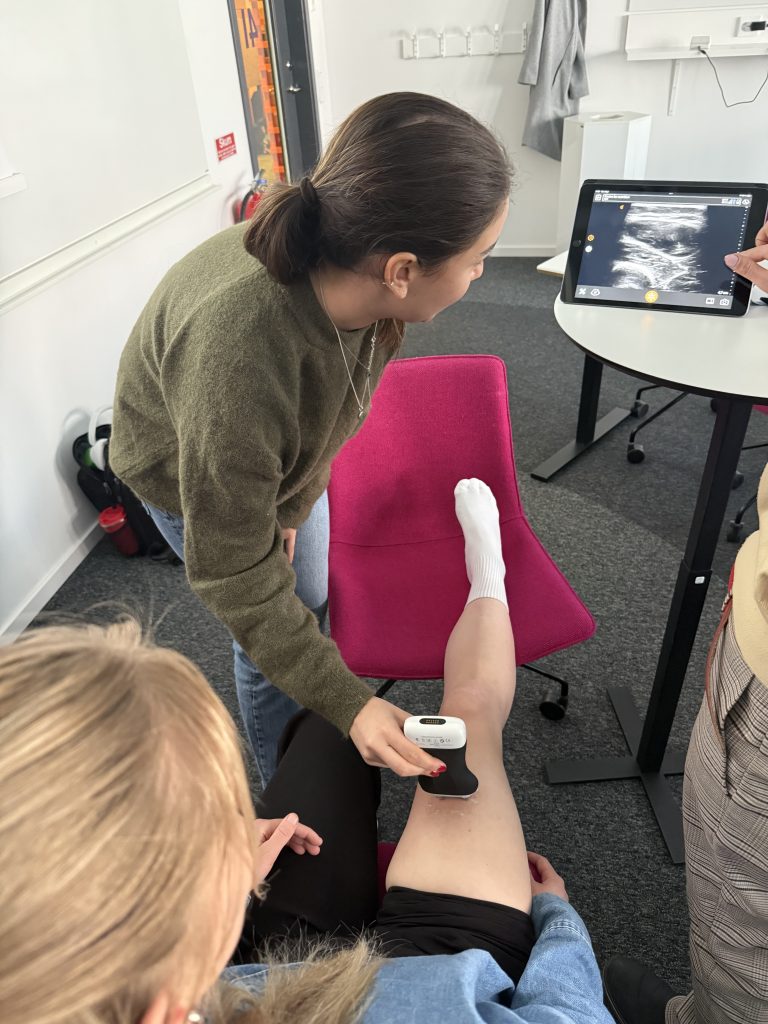
A Day at Huddinge Hospital
Today, I had the opportunity to attend an insightful workshop as part of our course “Nutrition and Diseases – Treatment and Clinical Aspects” at Karolinska Institutet. Every course at KI has its own unique teaching methods, and in our program, we primarily engage in journal clubs and discussions, which encourage interactive learning and critical thinking. Today, we stepped out of the classroom and went to Huddinge Hospital for a hands-on experience with body composition assessment.
Our session focused on two primary methods: Bioelectrical Impedance Analysis (BIA) and Ultrasound. We started the morning with a workshop on BIA, where we learned how to measure body composition using bioelectrical impedance. BIA estimates fat mass, lean body mass, and hydration status by measuring the resistance of body tissues to electrical currents. While BIA is quick, portable, and inexpensive, it’s important to remember that its accuracy can be influenced by the individual’s hydration levels, so results can vary.

In the afternoon, we moved on to Ultrasound, a method often used to assess muscle mass and fat distribution. We focused on evaluating muscle quality and myosteatosis, a condition where fat infiltrates muscle tissue. Ultrasound is particularly useful in clinical settings for assessing the quantity and quality of muscle mass, and we learned that increased fat infiltration can be associated with reduced muscle function.

After learning these methods, we had an engaging discussion session where we reflected on their clinical applications and how they can help in managing various diseases, such as sarcopenic obesity or malnutrition. This practical experience, combined with our ongoing discussions, helps us bridge the gap between theoretical knowledge and real-world clinical practices. It was fascinating to see how these techniques are applied in clinical settings to understand a patient’s nutritional status and overall health. These hands-on workshops, along with our journal clubs and discussions, are crucial for developing the skills we need to apply these methods effectively in our future careers.
Overall, today’s workshop was an excellent opportunity to learn about and discuss the importance of body composition assessment in clinical nutrition and disease management. I’m looking forward to more experiences like this throughout the course!
If you have any questions related to MSc Nutrition Sciences such as course overviews, exams etc. feel free to contact me 🙂

Irem - Nutrition Sciences
Hej everyone, I’m Irem and I’m from Turkey. I am studying the Master’s Programme in Nutrition Sciences. I have been always curious about nutrition and wanted to learn about its correlation with our health, so here I am, at Karolinska Institutet. I’m a cat person since I was little and love coffee. I enjoy spending time with my friends and having “fika” in the city.

0 comments